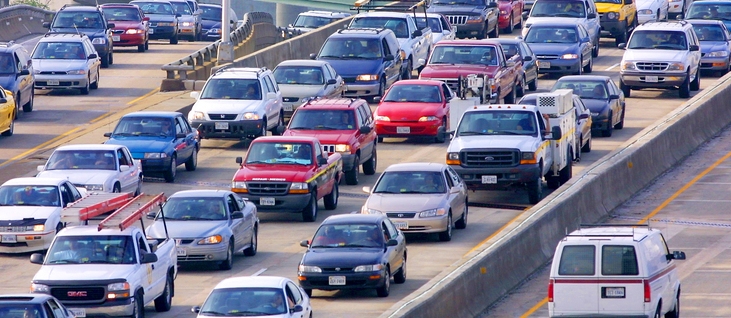Compact Development Is Not a "Silver Bullet" For Relieving Congestion

A new report from the University of Utah uses data to settle a debate that has been ongoing among transportation researchers since the 1990s: what are the effects of compact development on traffic congestion?
One camp argues that dense, compact development with a mixture of land uses will ultimately relieve congestion by encouraging fewer auto trips. On the opposite side, proponents of highway-induced, sprawling development argue that sprawl decreases congestion by funneling traffic away from dense areas, acting as a "traffic safety valve."
Led by Reid Ewing of the University of Utah and Shima Hamidi of the University of Texas at Arlington, this NITC study sought to address the question through cross sectional data. So which of these forms of urban development is better at reducing area-wide traffic congestion?
Surprisingly, neither.
Ewing and Hamidi arrived at the conclusion that development density—whether compact or sprawling—doesn't have a significant effect on traffic congestion.
"Compact development isn't a silver bullet for dealing with congestion. What seems to be more important is not building a lot of freeways, but building surface streets. That makes a big difference in reducing congestion. Also, having higher road user fees—measured by gasoline prices— also significantly reduces congestion," Ewing said.
The two researchers have also co-authored a book, Costs of Sprawl, to compare and research the impacts of sprawl. The strongest argument for sprawl is that it relieves congestion as a traffic safety valve, and this research has taken a big step toward putting that idea to rest.
"Sprawl has a lot of other negative consequences, but making congestion worse isn't one of them."
"Conversly, compact development has a lot of other benefits, which have been established in our work and others, but significantly relieving congestion isn't one of those benefits," Ewing said.
Read about the research in more detail in this project brief.
To get updates about this and other NITC research projects, sign up for our newsletter.
